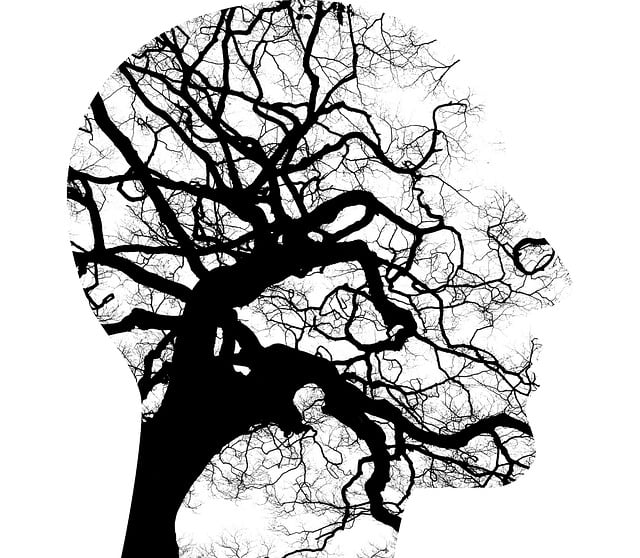Arvada Eating Disorders Therapy emphasizes the importance of self-assessment tools in improving mental wellness by providing insights into emotional, psychological, and behavioral states. Their personalized approach combines innovative Mental Wellness Journaling Exercises with Mind Over Matter principles to address complex mental health issues. The result is a tailored, effective framework that encourages self-awareness, promotes resilience, and fosters lasting recovery through continuous evaluation and targeted interventions. Arvada Eating Disorders Therapy's data-driven method stands out in the field, ensuring better outcomes for clients seeking mental wellness support.
Mental wellness self-assessment tools play a pivotal role in individual understanding and treatment, especially for eating disorders. This article explores the development of such tools, focusing on their importance in early detection and tailored therapy. We delve into strategies for creating effective frameworks, emphasizing the fusion of personal insights with professional guidance. Through real-world examples from Arvada Eating Disorders Therapy, we highlight how continuous self-assessment enhances treatment plans, ultimately fostering better mental wellness outcomes.
- Understanding Mental Wellness Self-Assessment Tools
- Identifying the Need for Customized Tools in Eating Disorders Therapy
- Key Components of an Effective Self-Assessment Framework
- Integrating Feedback and Personal Insights with Professional Guidance
- Enhancing Treatment Plans through Continuous Self-Assessment at Arvada Eating Disorders Therapy
Understanding Mental Wellness Self-Assessment Tools

Mental wellness self-assessment tools play a pivotal role in individuals’ journey towards better mental health and well-being. These tools are designed to help people gain insights into their emotional, psychological, and behavioral states, enabling them to make informed decisions about their mental health. By understanding their current standing, individuals can identify areas of concern, track progress over time, and take proactive measures to address potential issues.
One such area where these tools prove invaluable is in the context of Arvada Eating Disorders Therapy. Self-assessment helps clients recognize disordered eating patterns or warning signs of mental illness at an early stage. Additionally, they foster self-awareness and promote self-care practices, which are fundamental in burnout prevention and Mental Illness Stigma Reduction Efforts. Incorporating Mind Over Matter principles into these assessments can empower individuals to take control of their mental health, cultivating resilience and a positive mindset.
Identifying the Need for Customized Tools in Eating Disorders Therapy

In the realm of Arvada Eating Disorders Therapy, it’s evident that a one-size-fits-all approach often falls short when addressing complex mental health issues. Every individual navigates their recovery journey uniquely, with varying needs and challenges. This reality underscores the pressing need for customized self-assessment tools tailored to eating disorders therapy. Traditional methods might not adequately capture the intricate interplay of emotional intelligence, burnout prevention, and personal growth, which are crucial aspects of recovery.
Developing such tools involves delving into innovative Mental Wellness Journaling Exercise Guidance. By encouraging reflective practices, these exercises can help clients gain deeper insights into their behaviors and emotions. Incorporating techniques that foster emotional awareness and understanding can significantly enhance therapeutic outcomes. Customized assessments enable therapists in Arvada to offer more targeted interventions, ensuring each client receives the personalized support necessary for a successful and lasting recovery journey.
Key Components of an Effective Self-Assessment Framework

An effective self-assessment framework for mental wellness should incorporate several key components to ensure it’s comprehensive and useful. Firstly, it needs to include questions that assess a wide range of mental health aspects, from emotional well-being and stress management to specific symptoms or behaviors related to common mental health conditions, such as anxiety, depression, or eating disorders—even incorporating Arvada Eating Disorders Therapy principles where relevant.
Secondly, the framework should be designed with an individual’s ability to reflect on their own experiences in mind. Encouraging self-awareness through introspective questions is vital. This includes exploring one’s thoughts, feelings, and behaviors, as well as how they cope with challenges and engage in self-care practices. Incorporating Mind Over Matter principles can help individuals understand the connection between their mental state and daily habits, while also promoting healthy Stress Management strategies that support long-term mental wellness.
Integrating Feedback and Personal Insights with Professional Guidance

Integrating feedback from self-assessment tools with professional guidance is a powerful approach to enhancing mental wellness. These assessments provide individuals with valuable insights into their emotional and psychological states, helping them recognize patterns and areas for improvement. By combining this self-reflected data with expert advice, clients can gain a more comprehensive understanding of their mental health landscape. For instance, an Arvada Eating Disorders Therapy client using a mental wellness app might identify symptoms of body dysmorphia through self-assessment. A subsequent conversation with a therapist could offer professional interpretation and strategies for conflict resolution techniques to build resilience against these specific challenges.
This synergistic process empowers individuals to take ownership of their mental wellness journey. It fosters personal growth by encouraging self-awareness, enabling clients to actively participate in their therapy. Moreover, integrating feedback allows therapists to tailor interventions, ensuring that the support provided is both relevant and effective. This personalized approach can significantly enhance the benefits accrued from therapy sessions, contributing to improved resilience building and overall mental wellness outcomes.
Enhancing Treatment Plans through Continuous Self-Assessment at Arvada Eating Disorders Therapy

At Arvada Eating Disorders Therapy, we’ve revolutionized treatment plans through continuous self-assessment, marking a significant shift in mental wellness support. This approach involves regular, structured evaluations where individuals actively participate in monitoring their progress and identifying areas requiring adjustment. By fostering emotional regulation and stress management skills through these self-assessment tools, our clients gain valuable insights into their eating disorders and associated behaviors.
Our Mental Health Education Programs Design incorporates these regular check-ins, encouraging clients to track their emotional states, dietary habits, and overall well-being. This data not only enhances the accuracy of treatment plans but also empowers individuals to take ownership of their mental health journey. By promoting self-awareness and continuous learning, Arvada Eating Disorders Therapy ensures that each client receives a tailored approach addressing their unique needs, ultimately leading to better outcomes.
Mental wellness self-assessment tools, like those utilized at Arvada Eating Disorders Therapy, are invaluable assets in personalized treatment plans. By incorporating custom tools tailored to specific needs, such as eating disorders therapy, individuals gain a deeper understanding of their mental health. Continuous self-assessment enables proactive management of symptoms and fosters progress towards recovery. Integrating personal insights with professional guidance ensures a holistic approach, enhancing the effectiveness of treatment plans at Arvada Eating Disorders Therapy.














